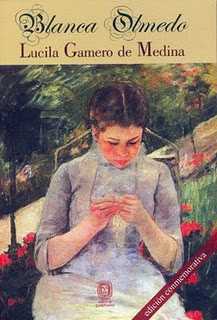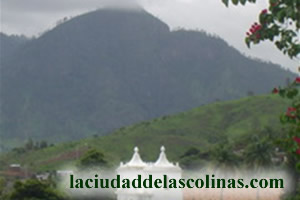 |
| Miguel Caballero Leiva |
Famous homosexuals of Honduras
In Honduras there are important public figures of the social life that are homosexuals, although the majority of them has not confessed publicly their homosexuality.
Closeted Homosexuals
It is said, for example, that a former president is a homosexual. This rumor has circulated for years, in spite of the fact that this is a married man and professes the catholic religion. Also the malicious tongues say that a former first lady is actually a man. I find very difficult to believe this, because she is very feminine and beautiful, but that’s the rumor that circulates.
All these rumors go by word of mouth. In Honduras there is no “tabloid press” neither the paparazzi. The mass media in Honduras doesn’t meddle with the private lives of Honduran celebrities.
Openly Homosexuals
Perhaps the best-known openly homosexual in Honduras is Miguel Caballero Leiva, who works in the show business. Miguel Caballero Leiva is a respected figure of the Honduran society, he is a homosexual that does not make any exhibitionism of his sexual tendency, just the opposite behavior of his protégé, the transvestite Josué Abraham Cardona, who goes by the name of Chiquinquirá Lorenz. It is said that this personage, that has a celebrity gossip blog, took away the husband of a journalist of the newscast TVC: Alejandra Rodriguez. Another openly homosexual of celebrity journalism is Xander Reyes.
The attitude of Honduran society towards homosexuals
Honduran society, having a Christian cultural basis, does not welcome the homosexuals tendencies, but they are tolerated. No Honduran law discriminates against homosexuals, although no one favors them.
There seems to be no chance for the approval of homosexual marriages in Honduras. A few years ago a constitutional amendment was made clarifying that Marriage can only be between a man and a woman. The political influence of the Christian religion would not allow gay marriage.
There is still some stigma attached to homosexuality which prevents many from openly declaring their sexual orientation. This is understandable in a conservative society, but it is not true that the condemnation of homosexuality originates only from the religious sphere. Honduran writer Longino Becerra, who is an atheist of Marxist tendencies, says in his book Ética para Jóvenes ( Ethics for Young People) : “Anyone who suffers from sexual deviations, whatever they may be, is with no doubt, a candidate not only for unhappiness, but also for tragedy. Always remember this. “
Homosexuals can not miss in humorous radio programs made in Honduras. The gays are found laughable for their mannerisms. Homosexuals are stereotyped in these programs as stylists and fashion designers.
It is normal for parents to be ashamed for having a gay kid, but despite these attitudes, understandable in a conservative society, there is no organized persecution against homosexuals.
Lately there have been reports of homosexual killings in Honduras, but this is explained by the
wave of violence that affects the entire Honduran society. This violence does not discriminate by gender or by sexual orientation.
Homosexual Activism
In Honduras there are organized homosexual groups with legal personality granted by the Honduran State, like the “Colectivo Violeta.” Some of these groups have recently organized “Gay Pride” parades.
These groups use very loosely the term homophobia as a way to stigmatize those who oppose their political agenda. The “World Day against Homophobia” is also celebrated in Honduras, and has
the attention of some of the media.


